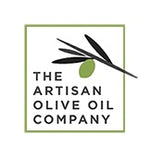Besides the chemical analysis, a key quality control procedure for olive oils is the tasting also referred to as the sensory or organoleptic analysis. At its most basic level, it divides olive oils into 3 broad categories lampante oil, virgin and extra virgin olive oil as defined by EU regulation and the international Olive Council. Tastings are carried by groups of 10-15 trained tasters who evaluate an oil based on a grid of criteria aimed at identifying the defects and the positive attributes.
The tasting is carried out in coloured glass (frequently blue) to avoid any bias in the evaluation. The container is warmed in the taster hands for a few minutes whilst covering it to release the aromas. The first stage consists in the smelling of the extra virgin olive oil. The second stage can be referred as slurping and is intended as spreading the olive oil in the mouth in order to identify its profile and flavours.

If an oil presents a median of defects greater than zero, it fails the official classification as an extra virgin olive oil and is either classified as virgin or lampante oil.
Negative attributes such as a fusty, musty, humid or rancid oils are frequently an indicator of errors in the production, extraction and storage of olive oils.
Positive attributes are analysed to criteria such as the fruitiness (light, medium intense green or ripe), bitterness (it being a quality sign for olive oil) and pungency.
Definitions
- Fruity: smells of fresh olive fruit, which can be green or ripe and of different intensities
- Bitter: taste of green olives or olives changing colour, perceived in the V zone of the tongue
- Pungent: typical sensation from olives harvested early, can be felt throughout the mouth.
Tasting provides the basis for a classification of olives oils which can be used for food pairing. Premium olive oils display significantly higher scores than common extra virgin olive oils, reflecting their particular production and storage processes. International competitions and awards use similar tastings to rank extra virgin olive oils to differentiate between average, good and exceptional olive oils. A long track record of international awards demonstrates the ability of an artisan to consistently produce excellent oil with a similar sensory profile is a key criteria in selecting our artisans.
A number of organisations provide tasting classes to increase your knowledge of premium olive oils. In the UK, Judy Ridgway, one of the most respected olive oil experts provides regular tasting classes in London and Brighton. We have listed below a number of organisations providing tasting courses in Spain by Evcata Spain, in Italy by ONAOO, and in the US by the Olive Oil School of Olive Oil Times.

